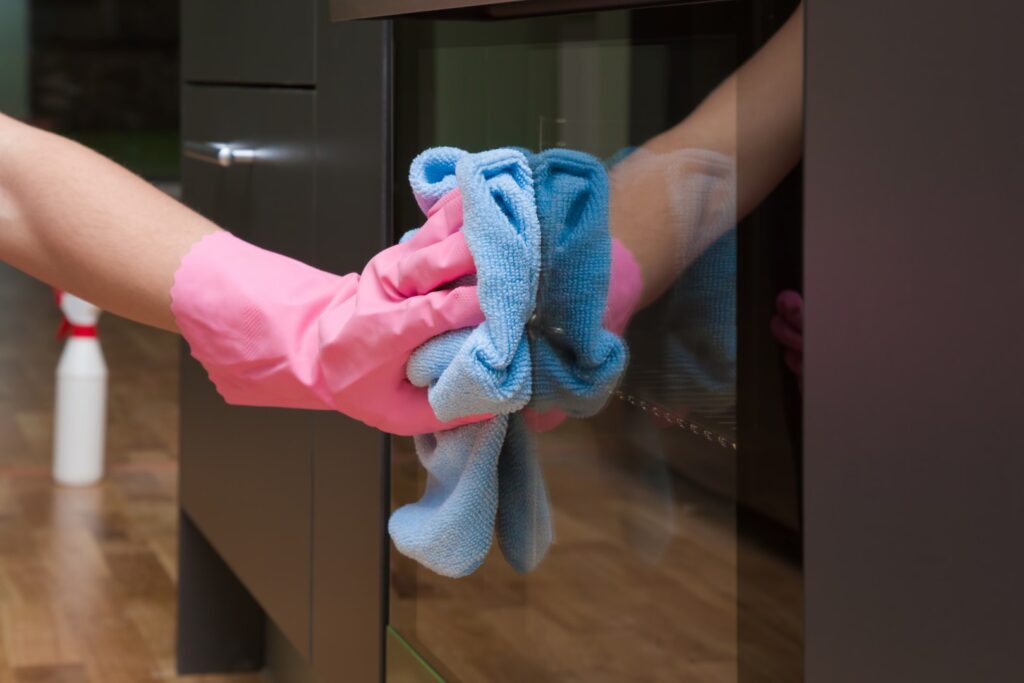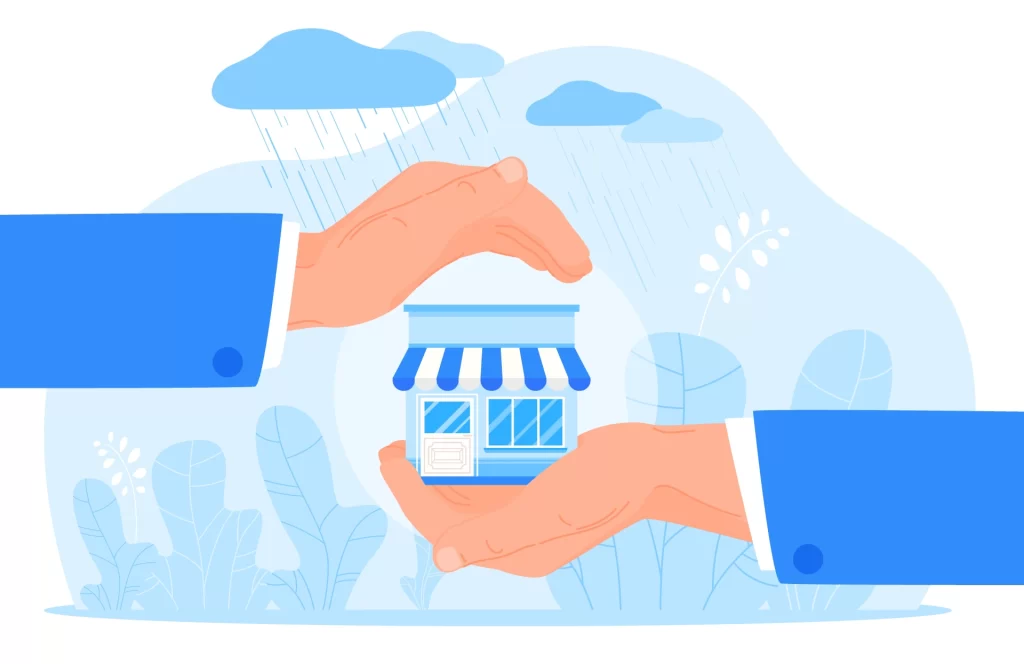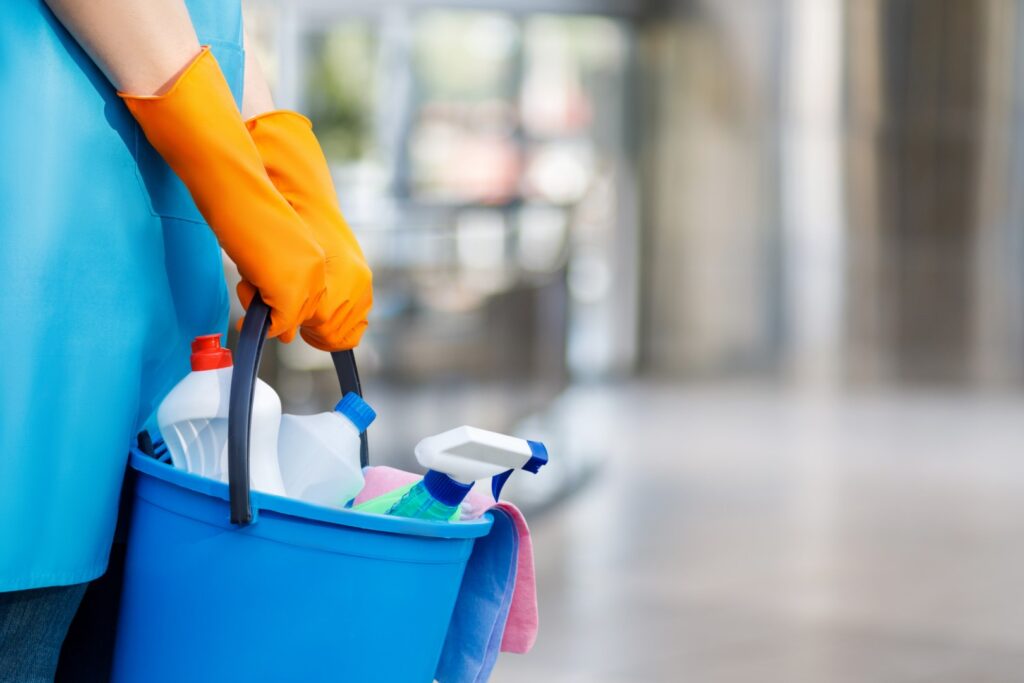Introduction
People often ask how to start a cleaning business. It's a great question and a cleaning business can be a great opportunity for entrepreneurs looking to own their own business. A cleaning business is a company that provides cleaning services to commercial and/or residential customers. These services can include everything from general house cleaning to more specialized services like carpet cleaning and deep cleaning.
There are many benefits to owning a cleaning business, including a high demand for cleaning services, the ability to choose your own hours and schedule, and the opportunity to be your own boss.
Additionally, starting a cleaning business can provide a flexible and low-cost startup option for entrepreneurs, with many cleaning businesses starting with just a few basic cleaning supplies and equipment.

The target market for cleaning is quite broad and includes both residential and commercial customers. Residential customers may include families, individuals, and landlords looking to have their homes cleaned.
Commercial customers can include office buildings, schools, hospitals, and other businesses looking for regular janitorial services. Additionally, there are opportunities for a cleaning business to target specific niches, such as eco-friendly cleaning solutions or maid services for busy professionals.
Whether you are starting a cleaning business as a sole proprietor or as a limited liability company, there are many opportunities to succeed in the cleaning industry. With careful planning and attention to your target market, you can build a successful and profitable cleaning business.
Here's a basic checklist for starting a cleaning business:
- Conduct market research to understand the demand for cleaning services in your area
- Choose a business structure (LLC, Sole Proprietorship, etc.)
- Register your business name and obtain a business license
- Create a business plan, including setting business goals and determining a budget
- Identify your target market and determine your unique selling point
- Purchase or lease cleaning equipment and supplies
- Build your brand by choosing a business name, creating a logo, and building a website
- Market and advertise your business through networking, online advertising, and customer incentives
- Hire and manage employees, including posting job vacancies, interviewing candidates, and providing onboarding and training
- Provide quality cleaning services and maintain customer satisfaction by adhering to local ordinances, utilizing cleaning software, and resolving customer complaints
- Stay compliant with local laws and regulations by acquiring business insurance, registering for business taxes, and keeping records of business expenses
- Continuously assess and improve your business operations to ensure success and growth.
The Cost of Starting a Cleaning Company
The cost of starting a cleaning business can vary greatly depending on several factors such as location, size of the business, marketing and advertising expenses, equipment, supplies, insurance, and legal requirements. On average, a cleaning business can be started with an initial investment ranging from $1,000 to $10,000.
It is important to create a comprehensive business plan that includes a budget and forecast of operating costs, so you can determine the amount of funding you will need to start your cleaning business.
Here are a few ways to fund the startup costs of a new cleaning company:
- Personal savings: You can use your personal savings to start a cleaning company, which is a common option for many small business owners.
- Small business loans: You can consider applying for a small business loan from a bank or a lending institution. This option can provide you with the funds you need to get started and may offer lower interest rates than other forms of funding.
- Crowdfunding: Crowdfunding platforms like Kickstarter or GoFundMe allow you to raise money from a large number of people. This option can be useful for raising funds to cover equipment and supplies.
- Partnerships: You can consider partnering with another business owner or investors who are willing to invest in your company in exchange for a share of the profits.
- Business credit cards: Some business credit cards offer rewards or cashback on purchases, which can help offset some of your startup expenses.
Cleaning Business Planning
Starting a cleaning business involves several important steps, including legal requirements, market research, and creating a comprehensive business plan. This section will outline these key steps to help you get started on the right track.
Legal Requirements
Before you start offering cleaning services, it's important to ensure that you comply with all relevant legal requirements.
Obtaining a Business License
You'll most likely need to obtain a business license to operate a cleaning business. Requirements for obtaining a license vary by location, so check with your local government to see what is required in your area.
- Determine your business location and research local licensing requirements: Before you start the process, research the local government's website and the requirements for obtaining a business license in your area.
- Complete the necessary forms and pay fees: Obtain the forms from the local government office and fill them out. Submit the forms along with the required fees.
- Provide proof of insurance: Most local governments require proof of insurance to grant a license. Obtain the required insurance coverage and provide proof of insurance to the local government.
- Wait for approval: After submitting the forms and fees, the local government will review and approve your application.
Registering Your Business Name
Next, you'll need to register your business name. This can typically be done with your local government or through a private business registration service. Make sure to choose a name that is distinctive and memorable, and that accurately represents your cleaning services.
Choosing a Company Structure (LLC, Sole Proprietorship, etc.)
When starting a cleaning business, it's important to choose the right business structure. Some popular options include a limited liability company (LLC), a sole proprietorship, or a partnership. Each structure has its own advantages and disadvantages, so it's important to consider your specific needs and goals when choosing a structure for your cleaning business.
Acquiring Business Insurance

When operating a cleaning business, it's important to consider acquiring business insurance to protect your company and employees from potential liability. There are various types of insurance policies to choose from, including general liability insurance, workers' compensation insurance, and commercial property insurance.
General liability insurance covers third-party claims, such as property damage or bodily injury, incurred on the job. Workers' compensation insurance protects employees who are injured on the job, covering medical expenses and lost wages. Commercial property insurance protects company-owned equipment and supplies in case of theft, fire, or damage.
Working with an insurance broker or agent with experience in the cleaning industry is recommended to help determine the necessary coverage for your business. It's important to ensure your insurance coverage is up to date and adequate for the cleaning jobs you provide. Don't wait until an accident or disaster strikes
Market Research
Before you start offering cleaning services, it's important to understand your target market and the competition in your local area. This information can help you determine your unique selling point and set competitive and profitable pricing.
An ounce of preparation is worth a pound of cure.
Benjamin Franklin
Understanding Your Target Market
Your market may include residential or commercial clients or both. Consider the demographics of your market, including their income, age, and lifestyle. This information can help you determine which services are in high demand and what your customers are looking for in a cleaning company.
Identifying Your Competition
Take time to research the cleaning businesses in your area. This can help you understand what services they offer, what they charge, and what sets them apart from your business. Consider how you can differentiate your cleaning services to stand out from the competition.
Determining Your Unique Selling Point
What sets your own cleaning business apart from others in your area? This could be anything from a focus on eco-friendly cleaning solutions to a commitment to providing exceptional customer service. Determine what sets your business apart and make sure this is highlighted in your marketing and outreach efforts.
You should also consider what type of focus you want to have for your new cleaning company.
Residential Cleaning Services
Residential cleaning services typically include cleaning homes, apartments, and other residential properties. This cleaning service often requires a high level of trust and dependability, as customers invite cleaners into their personal living spaces.
Commercial Cleaning Services
On the other hand, commercial cleaning typically focuses on cleaning office buildings, retail spaces, and other commercial properties. This type of cleaning service often requires specialized equipment and chemicals, and a deep understanding of commercial cleaning best practices. You must also understand how to sell to corporate clients or other small business owners. This may include leveraging your personal network.

Office Cleaning Services
Catering to office spaces is another option for cleaning businesses. This type of cleaning service focuses on cleaning, organizing, and maintaining a clean and professional work environment for employees.
Creating a Business Plan
Once you have completed your market research, it's time to start developing a comprehensive business plan. Your business plan should outline your goals, budget, and operating costs, and help you stay on track as you start your cleaning business.
Setting Business Goals
Start by setting clear and achievable goals for your cleaning business. Consider both short-term and long-term goals, and be realistic about what you can accomplish in the first year, for example.
Establishing a Budget
Your budget should include all expenses associated with starting and operating your cleaning business. This may include costs for supplies and equipment, advertising, business insurance, and any other expenses you anticipate.
Forecasting Your Operating Costs
Forecasting your operating costs is integral to creating a comprehensive business plan. This includes estimating costs for payroll, utilities, and any other ongoing expenses you will incur as you operate your cleaning business. By forecasting these costs, you can better prepare for the financial realities of running a cleaning business and make informed decisions about pricing and marketing strategies.
Equipment and Supplies
Starting a cleaning business requires obtaining the right equipment and supplies to complete the job efficiently and effectively. A proper investment in equipment and supplies is critical to the success of your business and sets the foundation for providing top-quality cleaning work to your customers.
Cleaning Equipment
Having the right tools and machinery is essential to providing high-quality cleaning services. You will need to invest in basic cleaning equipment, including a vacuum cleaner, mop, bucket, and cleaning cloths. Depending on the scope of your cleaning business, you may also need to invest in more specialized cleaning equipment, such as a pressure washer, steam cleaner, or floor scrubber.
There are two options for obtaining cleaning equipment – purchasing or leasing. Purchasing equipment is a more significant upfront investment, but it allows you to own the equipment and control maintenance and repairs.
On the other hand, leasing equipment can be a more cost-effective option, as it spreads the cost over a longer period and reduces upfront investment. However, with leasing, you will not own the equipment and will be responsible for returning it at the end of the lease period.

Cleaning Supplies
In addition to cleaning equipment, investing in the right cleaning supplies is vital to ensure you are providing high-quality cleaning services. Chemical solutions are essential to cleaning supplies, and choosing the right products for each cleaning task is essential to achieve optimal results.
Cleaning materials, such as towels, sponges, and brushes, are also critical components of a cleaning business and must be purchased in bulk to meet the demands of your business.
Personal protective equipment is also essential when working with cleaning chemicals and materials. This can include gloves, masks, eye protection, and overalls to ensure the safety of your employees and protect them from potential hazards. Investing in quality protective equipment is essential for the well-being of your employees and the success of your cleaning business.
Marketing and Advertising
Building Your Brand
Your brand is the first impression your potential customers will have of your cleaning business, so choosing a business name and creating a logo and website that accurately represents your services is important.
Consider the image you want to convey, and choose a name and design that aligns with your brand values.
Marketing Your Business
To effectively market your cleaning business, it is important to network with other business owners and utilize online advertising. Utilizing social media platforms like Facebook and Instagram and listing your cleaning service business on directories like Yelp and Google My Business can help you reach a wider audience. Additionally, encouraging repeat customers through loyalty programs or incentives can help build your customer base.
Securing Customers
Reaching out to potential clients through cold calls, emails, or direct mail can help secure customers for your cleaning business. Offering incentives like discounts for first-time customers, or special promotions for referrals can also help attract new business including commercial cleaning jobs. When determining your pricing structure, consider the cost of your supplies and equipment and your competition to ensure that you are offering competitive prices for your services.
Hiring and Managing Employees
Hiring Process
Finding the right employees is crucial to the success when you start your own cleaning business. A comprehensive hiring process helps you attract the best candidates and reduces the risk of hiring mistakes. Here's a step-by-step guide to help you with your hiring process:
Job Posting and Recruitment
When it comes to finding potential employees, you have several options. You can post job openings on online job boards, advertise in local newspapers, or reach out to local colleges and universities. The goal is to reach a wide pool of applicants who are interested in working in the cleaning industry.
Interviewing and Screening Candidates
Once you've received applications, it's time to start interviewing. During the interview, you should ask questions relating to the candidate's experience, work ethic, and ability to work in a fast-paced environment. You may also want to run background checks to verify their work history and references.
Onboarding and Training Employees
After you've hired the right employees, giving them the tools and training they need to succeed is important. This includes providing a comprehensive orientation program and ongoing training opportunities. This will ensure that your employees have the knowledge and skills they need to complete cleaning jobs effectively.
Managing Your Employees
As a business owner, effective management is essential to retaining employees and smoothly running your cleaning company. Here are some tips to help you manage your employees:

Setting Clear Expectations and Job Responsibilities
Establishing clear expectations and job responsibilities can help prevent misunderstandings and improve employee performance. This includes outlining specific duties and expectations and setting performance expectations and goals.
Providing Employee Benefits and Incentives
Offering benefits and incentives can help you attract and retain top employees. Consider offering health insurance, paid time off, or flexible schedules to show your employees that you value their contributions.
Monitoring Employee Performance
Regular performance evaluations can help you monitor your employees' progress and identify areas for improvement. This can also help you address any performance issues promptly and improve overall job satisfaction.
Operating Your Cleaning Business
Providing Cleaning Services
When operating a cleaning business, it's essential to assess each job site before starting work to determine the scope of the cleaning required and any safety concerns or special instructions. Establishing a company vehicle, whether it's a car or van, helps create a professional image and makes it easier to transport cleaning equipment and supplies to job sites. Additionally, it's crucial to be aware of and adhere to local ordinances and regulations that may impact your cleaning business operations.
Maintaining Quality
To maintain a high level of quality in your cleaning services, it can be helpful to utilize cleaning business software to manage schedules, track job progress, and monitor customer feedback. Implementing quality control measures, such as regular training for your employees and setting performance standards, can also help ensure consistently high-quality results. It's also important to have a process in place for resolving customer complaints quickly and efficiently.
Staying Compliant
Staying compliant with local, state, and federal regulations is essential for any business, including cleaning businesses. Acquiring business insurance, such as liability and workers' compensation coverage, can protect your business in the event of accidents or unexpected events. Registering for business taxes, such as sales tax, and keeping detailed records of business expenses can help ensure compliance with tax laws and make tax time easier.
Conclusion
Starting a cleaning business can be a lucrative and rewarding opportunity for entrepreneurs who are passionate about providing top-notch cleaning.
By carefully planning and preparing, including researching your target market, creating a business plan, and securing necessary equipment and supplies, you can increase your chances of success. Additionally, it's important to know the legal requirements, such as obtaining a business license, registering your business name, and getting insurance. Finally, don't be afraid to take the first step and pursue your dreams of starting a cleaning business. With hard work, dedication, and a commitment to providing quality services, you can build a successful and thriving cleaning business.
Thanks for reading our article on How to Start a Cleaning Business.
Frequently Asked Questions
Entrepreneurial skills, time management, customer service, attention to detail, and the ability to handle physically demanding work are all important skills for starting a cleaning business. Previous experience in cleaning or a related field may also be helpful.
Networking with other business owners, utilizing online advertising, reaching out to potential clients, and encouraging repeat business are all effective ways to find new clients for a cleaning business.
The amount you should charge for your cleaning services will depend on the location, type of services offered, and cost of living. It is important to determine your pricing structure by considering your costs, competition, and target market.
Business liability insurance, workers' compensation insurance, and property damage insurance are typically necessary insurance coverage for a cleaning business.
You can handle payroll and employee taxes by working with a payroll service provider or using accounting software. It is important to comply with local tax laws and regulations.
Implementing systems for tracking and managing clients, utilizing cleaning business software, delegating tasks to employees, and continuously improving processes are all effective ways to manage the growth of a cleaning business.
Competition, managing employee turnover, finding and retaining clients, and staying compliant with regulations are all common challenges faced by cleaning businesses. Overcoming these challenges can be achieved by developing a strong brand, providing excellent customer service, continuously improving processes, and staying compliant with regulations.
Yes, there is a difference between a cleaning company and a maid service. A cleaning company typically offers a wider range of cleaning services and may clean homes, offices, commercial spaces, and other facilities. On the other hand, a maid service typically specializes in residential cleaning and provides regular services such as vacuuming, dusting, and cleaning bathrooms and kitchens. Cleaning companies often have a larger staff and more resources than a maid service, which allows them to offer more services and clean larger spaces.
References
"Start a Cleaning Business: A Step-by-Step Guide" - Forbes, https://www.forbes.com/sites/forbesbusinessdevelopmentcouncil/2018/09/25/start-a-cleaning-business-a-step-by-step-guide/?sh=1557e9fa732d
"How to Start a Cleaning Business: The Ultimate Guide" - Fundera, https://www.fundera.com/blog/how-to-start-a-cleaning-business



